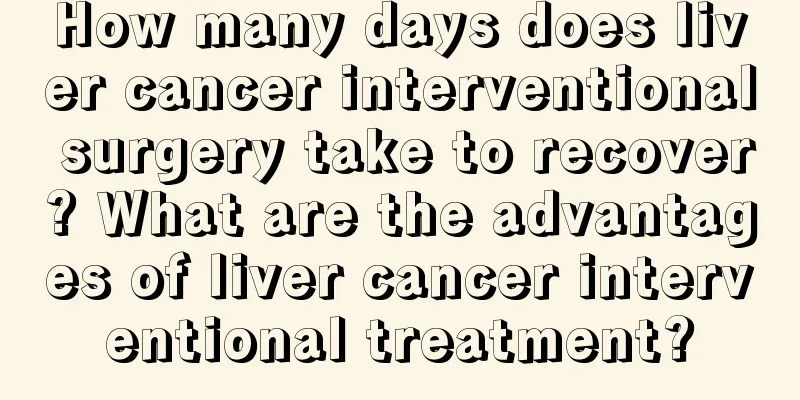What are the causes of palpitations, chest tightness and general weakness?

|
There are always many diseases in life that affect everyone's body and life. No matter which disease it is, there are many forms. Different forms of the disease require different treatments. There are many reasons for palpitations, chest tightness, and general weakness. However, many people do not understand them very well at the beginning, so many problems arise during treatment. So, what are the causes of palpitations, chest tightness and general weakness? Chest tightness is a common clinical symptom. Functional chest tightness (i.e. chest tightness without organic lesions) refers to staying in a room with closed doors and windows and poor air circulation for a long time, or encountering some unpleasant things, or even quarreling with others, or being in a climate with low air pressure, which often produces chest tightness and fatigue. After a short rest, opening windows for ventilation or going outside to breathe fresh air, relaxing the mind, regulating emotions, and soon returning to normal. This kind of chest tightness can be said to be functional chest tightness, and there is no need to be nervous or treated. In daily diagnosis and treatment of patients, we often encounter some patients who complain of chest tightness, palpitations, and chest pain, and think they have "heart disease" and come to the hospital for treatment with worries. However, most patients are examined: X-rays, electrocardiograms and ultrasound electrocardiograms are all normal. This is not an organic heart disease, but a functional disorder of cardiac neurosis (i.e. cardiac autonomic dysfunction) with cardiovascular symptoms as the main feature. Due to the effects of anxiety, tension, emotional excitement, mental trauma and other factors, the central excitation and inhibition process is disturbed, and the cardiovascular system regulated by the autonomic nervous system is also disordered, causing a series of symptoms of excessive sympathetic tension. In addition, excessive fatigue, too little physical activity, and lack of proper exercise of the circulatory system make it impossible to adapt to a little activity or a little fatigue, thus producing excessive cardiovascular reactions and causing this disease. Cardiac neurosis is a type of systemic neurosis (i.e., the manifestation of autonomic dysfunction in the cardiovascular system), and its symptoms are varied. The most common subjective symptoms are palpitations, dyspnea, precordial pain and general fatigue, as well as easy excitement, insomnia, sweating, trembling, dizziness, and dreaminess. Pathological chest tightness (i.e., chest tightness with organic lesions): Chest tightness can not only be physiological, but also caused by diseases of certain organs in the body, i.e., pathological chest tightness: 1. Respiratory obstruction: tumors in the trachea and bronchus, tracheal stenosis, external pressure on the trachea (thyroid enlargement, tumors in the mediastinum); 2. Lung diseases: emphysema, bronchitis, asthma, atelectasis, pulmonary infarction, pneumothorax; 3. Heart disease: some congenital heart diseases, rheumatic heart valve disease, coronary heart disease, heart tumors; 4. Diaphragmatic diseases: diaphragmatic swelling, diaphragmatic paralysis; 5. Disturbance of body fluid metabolism and acid-base balance, etc. When you have chest tightness accompanied by nausea and vomiting, it is more likely to be caused by gastric disease. The common clinical gastrocardiac syndrome is this clinical manifestation. Based on the above introduction, we should also know the causes of palpitations, chest tightness and general weakness. It is to tell patients that if any abnormal situation occurs, they must find out the cause in time. In this way, you can find the appropriate treatment method based on your own problems so as to better restore your health. |
<<: What to do if a child has a fever and convulsions
>>: What are the clinical manifestations of neonatal asphyxia
Recommend
High-risk factors for colorectal cancer
In the 1970s, about 10 people out of 100,000 had ...
Which pillow core is better?
The pillow core is something we come into close c...
Is it useful to put wind oil in the room
I believe many people don't know what are the...
How to store sparkling wine
Wine is a very common drink in daily life, and th...
What is down cotton
Down cotton is used in many places in daily life,...
What is the reason for upper abdominal pain
The abdomen is a part of the human body that will...
Tips for preventing heat stroke in summer
In the hot summer, be careful of heatstroke. Let’...
Is it good to have a baby with ovarian cancer
Ovarian cancer does not have obvious symptoms. On...
What are the dangers of low cholesterol?
As we all know, in general, we all know that high...
What to do if you have loose stools in the middle and late stages of ovarian cancer? What are the symptoms of middle and late stages of ovarian cancer?
The number of ovarian cancer patients in the worl...
How to care for depression
Many people are familiar with depression, which h...
My butt hurts when I sit on a hard stool
Sitting for long periods of time has become a nor...
Eight tips for office ladies to enjoy life easily
1. Drawing with psychology When pressure comes, o...
Adjustment of sleeping position for high and low eyebrows
We all know that the facial features of the human...
Medicinal effects and functions of aloe vera
Aloe vera is a common evergreen plant. Many peopl...









